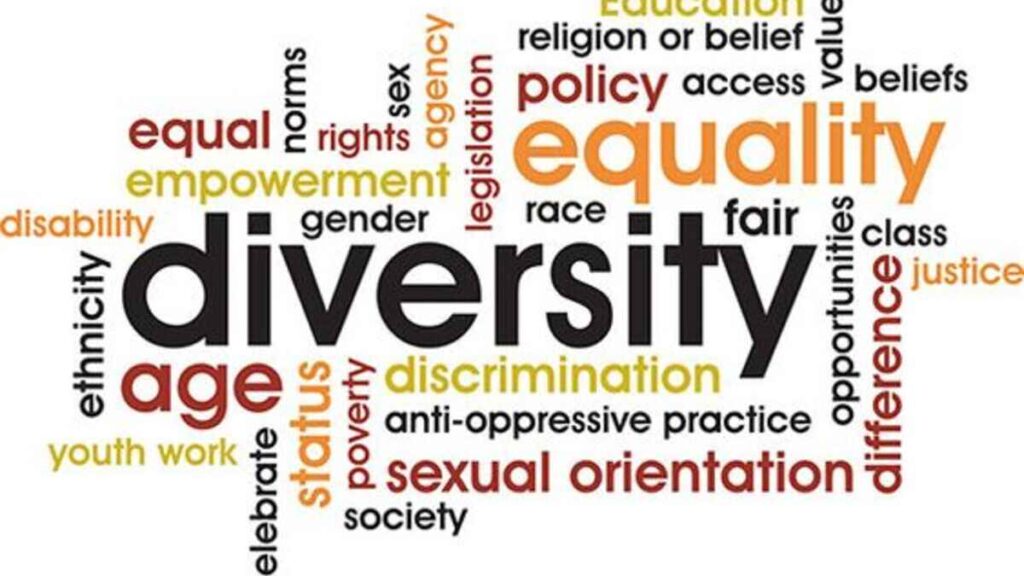For the past year, diversity, equity, and inclusion (DEI) programs have been receiving constant backlash. While this started mainly with Florida’s governor, Ron DeSantis, it quickly spread to many other Republican leaders and states.
Now, several states are seeing a ban on DEI practices across the country.
DEI
DEI stands for Diversity, Equity, and Inclusion in practices, offices, schools, and other institutions. This includes different types of practices and frameworks that are put in place in order to ensure the fair treatment and participation of people from all walks of life, particularly minorities.
Recently, at least 22 states have put restrictions or bans on DEI practices, leading to a setback for these minorities in the states.
Hall Says DEI Focuses Solely on Identity
Utah has joined the list as its government has signed an anti-DEI bill that is stated to go into effect on the first day of July 2024. According to people who oppose DEI and its practices, they believe that DEI initiatives focus too much on a person’s identity, and this should not be the case.
Katy Hall, a Utah State Representative who sponsored the legislation noted that DEI does not seem right and should not be on an application.
A Growing Trend
The fight against DEI practices started last year when Florida Governor Ron DeSantis officially implemented a couple of anti-DEI laws. Not long after, Texas also did the same, and Governor Greg Abbott put his own anti-DEI laws in place.
Unsurprisingly, this led to a huge debate across the country and many other states are now leaning towards anti-DEI laws.
DeSantis Against Discrimination
While making his point against DEI, DeSantis gave a speech to express his views against the policies and why he felt so. He noted that DEI seemed to stand for “Discrimination, Exclusion, and Indoctrination” rather than the usual “Diversity, Equity, and Inclusion” that we all know.
Therefore, he pointed out that he couldn’t allow policies like that to exist in public institutions.
WATCH: Wealthy White Louisiana Residents Split From Black Neighborhoods to Form New City
Hall Gave A Similar Speech
While explaining why Utah was taking a step against DEI, Hall also made statements similar to DeSantis’ earlier points. She said that they aim to increase diversity, equity, and inclusion, not just based on external factors and characteristics of an individual.
Therefore, it is clear to see that the lawmakers who strongly oppose DEI believe that they are the true providers of justice and equality.
POLL—Should Public Schools Include Critical Race Theory and Sex Education in Their Curriculum?
Hope for Political Neutrality
Nowadays, political talks spark up huge debates that often lead to people questioning other people’s morality and character. Therefore, Hall hopes to bring in a future that would allow people to have differences in political opinions without huge backlash.
She hopes that people will be able to talk about things like DEI without being divisive or under political pressure.
How Americans Feel About DEI
While the politicians go back and forth on DEI practices, the Washington Post and Ipsos poll conducted a survey to determine how the general public feels about DEI. Surprisingly, the majority of Americans are in support of DEI. 61% believe that DEI is good and important, while only 34% think it is bad.
Therefore, these anti-DEI laws are clearly not in favor of the general public and seem more like a political agenda.
Anti-DEI Sentiment Has Become Mainstream
Anti-DEI sentiments have always been in existence. However, it became mainstream last year when prominent political figures and activists started to mention it. For example, Bill Ackman, the billionaire hedge fund manager wrote a very lengthy post on X blaming DEI practices for anti-semitism attacks on campuses like Harvard university.
He claimed that DEI was the reason for all the violence and riots in universities and that officials needed to scrap it.
WATCH: Powell Warns US Is on an “Unsustainable Fiscal Path”
The Anti-DEI Law in Iowa
In Iowa, Governor Kim Reynolds signed a bill into law in May that opposed DEI. However, many people saw this bill as one of the most extreme DEI opposition bills in the country.
According to Jeremy C. Young and Sam LaFrance of the Des Moines Register, if courts in the state do not stop or veto this bill, it will signify the beginning of restricted academic freedom in all Iowa public universities.
A Far Stretching Ban
Not only did the government of Iowa ban all official DEI offices in public universities, but it also put a stop to any activity that is related to DEI.
Governor Reynolds gave a speech during the signing of the bill, saying that Iowa is strongly committed to making sure that its educational system is producing high-quality education for every student without allowing the “divisive influence” of DEI to hinder that.
Critics React
However, those who support DEI have been very critical of these recent bans. According to Jeremy Young, a program director at PEN America, these bans are detrimental in the long run. This is because they can serve as an avenue to ban almost any idea.
People would also be too scared to implement new ideas out of fear of potentially violating the law.
Overcorrection Universities
Furthermore, Young noted that many universities are now so scared of violating the law that they have been overcorrecting their DEI policies.
Without a doubt, this constant political push against DEI will have a negative impact on the students in the future as they will lose their freedom of expression, and minorities will be at the receiving end.
You Might Also Like:
New Research Says Drinking Before Taking a Nap on the Plane Could Hurt You
Cher Wins 50% Royalties Lawsuit Against Mary Bono, Sonny Bono’s Widow
Blake Lively Raves About “Dreamy” Ryan Reynolds in His Newest Film
Tips on How To Use Turmeric Milk for Cholesterol Management
Kim Zolciak and Kroy Biermann Reach Agreement on Foreclosure
